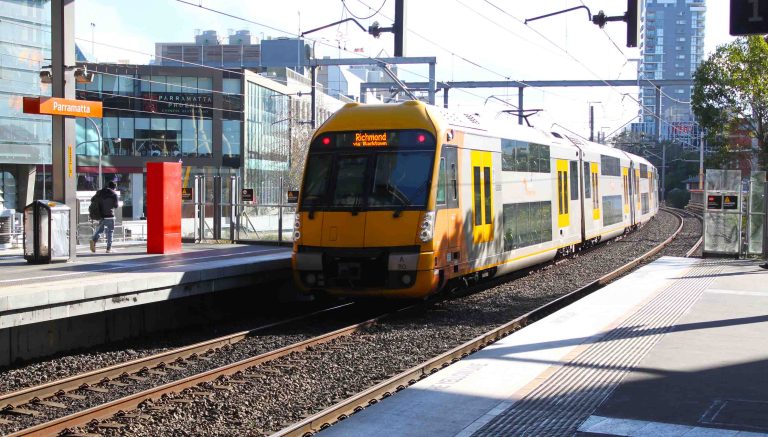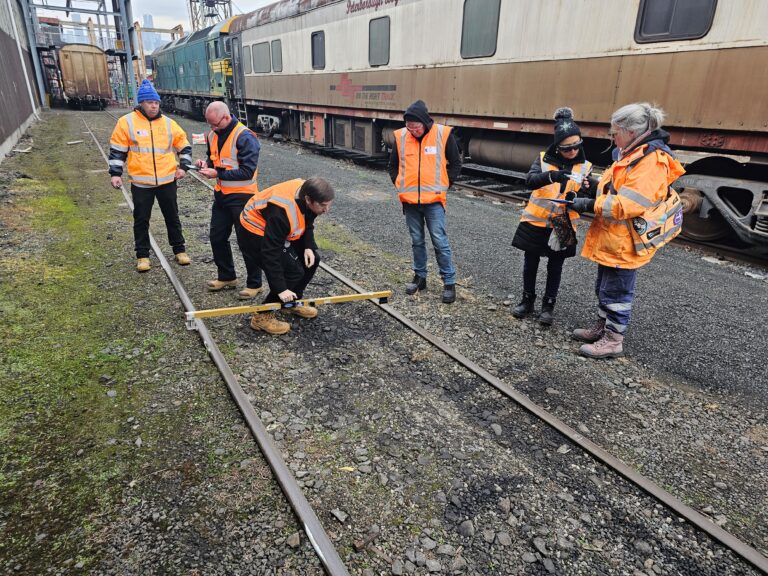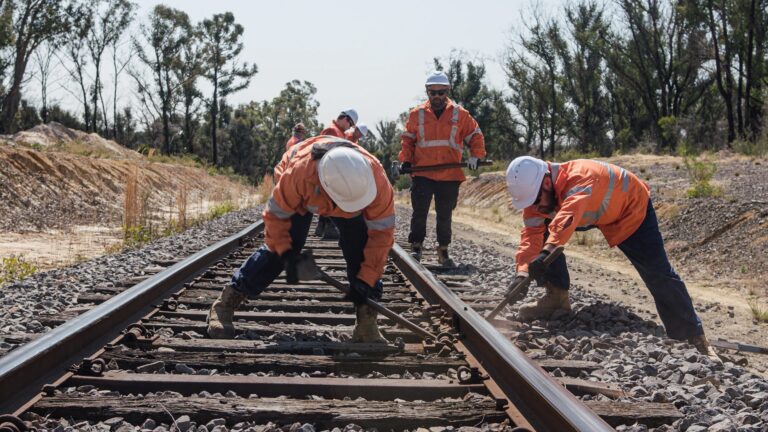How to Enter the Rail Industry Network
The rail industry is a vital part of Australia’s rail infrastructure, offering numerous career opportunities for individuals at various skill levels.
Australia’s railway industry facilitates the efficient movement of goods and passengers across the country. It plays a crucial role in supporting economic growth, reducing road congestion, and providing a sustainable transportation option.
As a significant employer, the rail industry offers diverse career opportunities ranging from operational roles to highly specialised technical positions.
Whether you’re starting with minimal experience or have specific qualifications, there are entry points into this dynamic sector that can pave the way for a rewarding career.
Here’s a guide on how to get into the rail industry through entry-level roles and obtain your Rail Industry Worker (RIW) card.
Understanding Railway Entry-Level Jobs
There are several entry-level pathways that offer practical experience and insight into how rail networks and infrastructure operate. Here are some key points to consider:
- Traineeships: These programs allow you to earn a wage while completing nationally recognized training. Traineeships can be part-time or full-time, depending on your availability and the program’s structure.
- Work Experience Placements: These placements are a great way to gain firsthand experience, make industry connections, and understand the daily operations within the rail industry before starting a full-time career.
Common Entry-Level Roles:
- Cleaner: Maintains cleanliness in trains and stations.
- Document Controller: Manages and organises project documentation.
- Guard (Conductor): Ensures passenger safety and ticket compliance.
- Handsignaller: Manages rail traffic using manual signals.
- Lookout: Watches for and warns workers of approaching trains.
- Protection Officer: Ensures the safety of workers in the rail corridor.
- Revenue Protection Officer: Monitors and ensures fare compliance.
- Stores Worker: Manages inventory and supplies for rail operations.
- Trade Assistant: Assists tradespeople with their tasks.
- Train Controller: Oversees train movements and schedules.
- Train Driver: Operates trains, ensuring safe and timely travel.
- Tram Driver: Operates trams, providing public transportation services.
For apprentice hopefuls, there are equally as many opportunities around the country to start a fruitful career on the railways. You’ll find the information you need in our guide on finding a rail job in Australia.
Each of these roles provides a stepping stone into the rail industry, offering valuable experience and opportunities for career advancement.
How to Get Rail Industry Worker Card
To work on the rail network, obtaining a Rail Industry Worker (RIW) card is essential.
The RIW Program established a single national competency management system enabling participant organisations to track a worker’s job roles, competencies, and previous projects and employers. By maintaining a single electronic record of each worker’s health, education, and competencies; the RIW program assists in meeting regulatory requirements and compliance with Rail Safety National Law.
The RIW card is the physical card linked to a RIW profile that maintains a record of a rail worker’s competencies, training, and qualifications. It conveniently benefits workers who move between jobs, employers and projects.
Steps to Obtain a RIW Card
A RIW card isn’t a requirement for all rail networks, however, if an employer or project includes any of the rail corridors within the participating rail networks, the RIW Card is mandatory.
- Complete Required Rail Corridor Training: Ensure you have completed necessary training courses such as Safely Access the Rail Corridor (SARC), previously known as Rail Industry Safety Induction (RISI) from credible participating rail organisations.
TLIF0020 – Safely Access the Rail Corridor is the basis of various Rail Network mandatory rail safety induction programs. To complete SARC training with CERT, click on the link relevant to your state below to quickly and easily book online. - Apply for the RIW Card:
- New Rail Industry Workers: Apply directly through the RIW website.
- RIW Card + Job Ready: Apply through the job-ready program if you have completed all required training.
- Employer Issuance: Ask your employer to issue the card on your behalf.
- Monitor Your RIW Profile: Use the myRIW portal to track your competencies, health assessments, and site access history.
For detailed steps on obtaining your RIW card, read our guide here.
Enrol at CERT Training
For more information on specific training courses available in your state and how to get started, contact our rail training centre.
To enquire about Safely Access the Rail Corridor courses, contact us at 1300 042 3780 or click your state below:
- TfNSW Accessing the Rail Corridor Induction (SX52/RISI), for Transport for New South Wales and Sydney Trains
- ZOOM Qr3.2 Safely Access the Rail Corridor (SARC) & TLIF0020 in Queensland for the Queensland Rail Network
- QR3.2 Safely Access the Rail Corridor & Tlif0020 (SARC) in Queensland for the Queensland Rail Network
- V/Line Safely Access the Rail Corridor (SARC) in Victoria for Victorian Rail Networks outside of the Metropolitan Area of Melbourne
- Safely Access the Rail Corridor (SARC) in South Australia for South Australian Rail Networks
Start your journey in the rail industry today and build a career that keeps Australia moving.
To stay updated about rail industry practices, key safety information and best practices, follow us on our social media: Facebook and LinkedIn.
-
How to become a NSW rail protection officer
Before answering the ultimate question of “How to become a rail protection officer”, we must answer some of the frequently asked questions about this role. Understanding the nuances of the position and its demands is essential in determining whether it aligns with your skill set and the trajectory you envision for your career.
-
RISSB Derailment Investigation and Analysis Workshop
Investigating a derailment is a complex process. Investigations must be conducted in a structured and thorough manner to correctly identify the causes of derailment…
-
Prepare for post-COVID Projects in Victoria
Victorian COVID-19 restrictions have caused many projects to reduce workforce capacity to 25% or less. As restrictions are eased, more opportunities will arise as…



